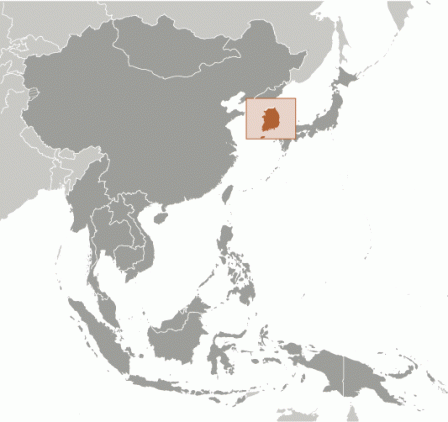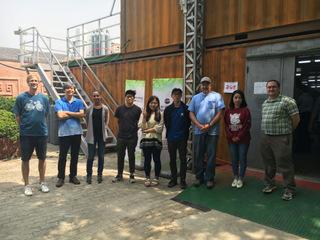EPA Collaboration with South Korea

The U.S. Environmental Protection Agency collaborates with South Korea to protect public health and the environment. EPA, the Ministry of Environment of Korea, Exit and partner agencies in both countries cooperate to improve air and water quality, and reduce exposure to toxic chemicals.
- Memorandum of Understanding Between the Environmental Protection Agency of the United States of America and the Environment Administration of the Republic of Korea (predecessor to the Ministry of Environment) (1987)
Explore our work in South Korea:
Improving Air Quality
 EPA and Korean researchers at the Olympic Park air quality monitoring site in Seoul, South Korea. Measurements will be combined with other observations to improve understanding of air quality in East Asia.
EPA and Korean researchers at the Olympic Park air quality monitoring site in Seoul, South Korea. Measurements will be combined with other observations to improve understanding of air quality in East Asia.The Korea-United States Air Quality Study (KORUS-AQ) is an international, multi-organization mission to observe air quality across the Korean peninsula and surrounding waters. In 2016, EPA worked with the U.S. National Aeronautics and Space Administration (NASA), the Korean National Institute of Environmental Research, and others to integrate observation from satellites, aircraft, and ground sites with air quality models to better understand the factors controlling air quality across urban, rural and coastal boundaries in East Asia.
EPA provided expertise in ground-based measurements, focusing on nitrogen oxides, ozone and particulate matter. This allowed EPA to continue evaluation of air quality monitoring methods and tools, provide data to the air quality modeling community to advance global-scale modeling, and apply knowledge gained to support further ground-based measurements.
Learn more:
Reducing Exposure to Toxic Chemicals
Deputy Assistant Administrator for Chemical Safety and Pollution Prevention Nancy Beck spoke at the Ministry of Environment’s International Seminar on Management of Chemicals and Biocides in Seoul in September 2018. DAA Beck presented to government officials and industry and other stakeholders on topics including implementation of the amended Toxic Substances Control Act (TSCA) and products management under the Federal Insecticide, Fungicide and Rodenticide Act, and assessment methods.
These discussions helped to broaden South Korean understanding of chemical management in the United States and other Western countries. Over 350 participants attended the public portion of the seminar. EPA staff had previously traveled to South Korea in April 2017 to share information on manufactured nanomaterial and the development of the amended TSCA Act.
